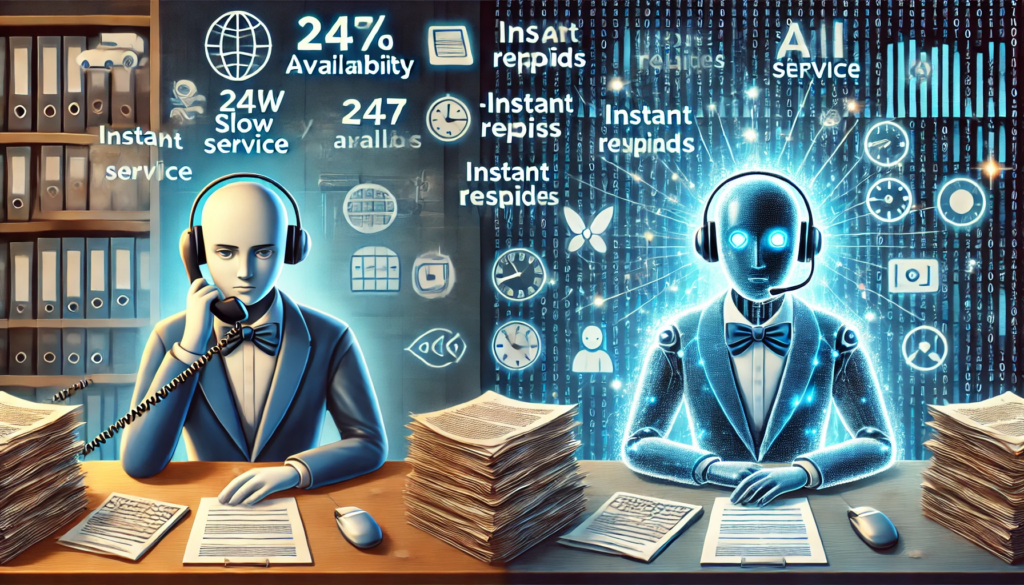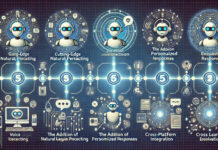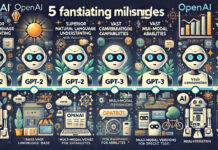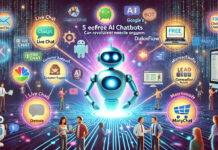Introduction
The evolution of customer service has seen numerous advancements over the past few decades, with the latest breakthrough being the implementation of artificial intelligence online chat systems. As businesses face increasing pressure to deliver faster and more efficient customer service, AI chatbots have emerged as a powerful tool to enhance communication, improve scalability, and provide accurate responses. Traditional customer service, although effective in the past, now struggles to keep up with the demands of the modern world where customers expect instant, 24/7 support. In this article, we will explore the 5 remarkable advantages of artificial intelligence online chat over traditional customer service, focusing on how these systems are transforming the customer experience.
Problem with Traditional Customer Service
Traditional customer service models rely heavily on human agents, who are limited in their ability to provide fast and efficient support. One of the most significant challenges is the lack of 24/7 availability, which many customers now expect. Human agents are constrained by working hours, fatigue, and the inability to handle multiple inquiries at once, especially during peak times. As a result, customers often face long wait times and inconsistent service quality, leading to frustration and dissatisfaction.
Another issue with traditional customer service is scalability. As businesses grow and customer bases expand, the need to hire and train additional staff becomes a costly and time-consuming endeavor. Even with a large customer service team, the sheer volume of inquiries can overwhelm human agents, leading to delays in responses and a decline in service quality. This is where AI chatbots provide a significant advantage, offering a scalable solution that can handle multiple inquiries simultaneously.
Moreover, traditional customer service often suffers from inconsistent responses. Human agents, despite their training, may provide varying answers to the same query, depending on their level of experience or understanding of the problem. This inconsistency can damage the customer’s trust in the brand and make it harder for businesses to maintain a high level of service across all touchpoints. AI chat systems, on the other hand, provide consistent, accurate responses every time.
Introduction of IVR Systems in the 1980s
In the 1980s, the introduction of Interactive Voice Response (IVR) systems was one of the first attempts to automate customer service interactions. IVR systems allowed customers to interact with a computer using voice recognition or touch-tone inputs, thereby reducing the need for human agents in handling basic inquiries. While this technology was a significant advancement at the time, it had its limitations.
IVR systems were effective for handling simple tasks, such as routing calls to the appropriate department or providing information about account balances. However, their inability to handle complex inquiries or understand natural language often frustrated users. Customers would have to navigate through multiple layers of automated menus, which was time-consuming and impersonal. Moreover, the lack of a conversational interface made it difficult for IVR systems to provide a seamless experience, especially for users who required more personalized support.
Despite its shortcomings, IVR laid the foundation for more sophisticated AI chat solutions. It demonstrated the potential for automating customer service, even if the technology wasn’t fully developed at the time. The next big leap came with the introduction of rule-based chatbots, which attempted to mimic human conversation in a more meaningful way.
Introduction of Rule-Based Chatbots in the 1990s
In the 1990s, rule-based chatbots like Eliza were introduced as a step forward in the automation of customer service. These early AI chatbots operated on pre-defined rules and scripts, generating responses based on specific keywords detected in the user’s input. While this was an improvement over IVR systems, rule-based chatbots still faced significant limitations.
The main problem with rule-based chatbots was their lack of flexibility. These systems could handle simple, predictable queries but struggled when the conversation deviated from their predefined scripts. For instance, if a user asked a question that wasn’t covered by the bot’s programmed responses, the chatbot would either provide an incorrect answer or fail to respond altogether. This made them unreliable for handling more complex interactions, such as troubleshooting technical issues or addressing detailed customer inquiries.
Nevertheless, rule-based chatbots represented an important step in the evolution of AI chat systems. They showed that machines could engage in basic conversations and demonstrated the potential for further advancements in artificial intelligence. These early systems paved the way for the development of more sophisticated AI chatbots, which use machine learning and natural language processing to deliver far more accurate and dynamic responses.

Instant and 24/7 Availability
Meeting Customer Expectations
One of the most compelling advantages of AI chatbots over traditional customer service is their ability to provide instant, 24/7 support. In today’s digital age, customers expect businesses to be available at all times, whether they’re seeking help with a product, asking a question, or troubleshooting an issue. Unlike human agents, who are limited by working hours, AI chatbots can operate around the clock, ensuring that customers always have access to support when they need it.
With artificial intelligence online chat, there is no need for customers to wait for the next available agent. The AI chatbot can instantly respond to inquiries, providing immediate assistance without any delays. This instant availability significantly enhances the customer experience, as users receive the information they need quickly and efficiently, which leads to higher satisfaction levels.
Reducing Response Times
One of the biggest drawbacks of traditional customer service is the long wait times customers often face, especially during peak hours. When call centers are overwhelmed with inquiries, customers may be put on hold or asked to wait for an email response. This can lead to frustration and even drive customers away from the brand.
AI chatbots, on the other hand, can handle multiple inquiries simultaneously without being overwhelmed. Whether the business is experiencing high traffic or low, the AI chat system remains equally responsive. By automating routine inquiries and freeing up human agents to focus on more complex issues, artificial intelligence online chat helps reduce response times across the board, leading to faster problem resolution and improved customer satisfaction.
Handling Peak Traffic Efficiently
During peak hours, such as holiday shopping seasons or new product launches, businesses often struggle to handle the surge in customer inquiries. Traditional customer service teams can become overwhelmed, leading to delayed responses and decreased service quality. However, AI chatbots are designed to handle large volumes of inquiries without being impacted by traffic spikes.
With AI chatbots, businesses don’t have to worry about hiring additional staff to manage peak periods. The chatbot can manage a virtually unlimited number of conversations at once, ensuring that every customer receives prompt attention. This scalability makes AI chat systems an ideal solution for businesses looking to maintain high service standards without increasing costs.
Scalability Without Added Costs
Effortless Scaling
As businesses grow and expand their customer base, traditional customer service models struggle to keep up with the increased demand. Hiring and training new customer service agents is a costly and time-consuming process, and even with a larger team, it can be difficult to maintain the same level of service as the volume of inquiries increases.
In contrast, AI chatbots provide a scalable solution that can grow with the business without requiring additional resources. An AI chatbot can handle an increasing number of inquiries without the need for extra staff, making it a cost-effective way to manage customer support. As businesses scale, the AI chatbot can be programmed to handle more complex tasks, ensuring that customers continue to receive high-quality service even as the company grows.
Supporting Global Businesses
For global businesses, providing consistent customer support across different time zones and languages can be a significant challenge. Traditional customer service models often require hiring agents in multiple countries to ensure that support is available around the clock, which can be both costly and difficult to manage.
AI chatbots, however, can provide seamless support to customers regardless of their location. Many AI chat online systems are equipped with multilingual capabilities, allowing them to communicate with customers in their preferred language. This ensures that businesses can offer consistent, high-quality support to their global customer base without the need for additional staff or resources.
Maintaining Consistent Quality
One of the key benefits of AI chatbots is their ability to provide consistent, high-quality service across all interactions. While human agents may offer varying levels of service depending on their experience or the complexity of the inquiry, AI chat systems are designed to deliver the same level of accuracy and precision in every conversation.
By using AI chatbots, businesses can ensure that every customer receives the correct information, regardless of the volume of inquiries or the complexity of the question. This consistency not only improves the overall customer experience but also helps build trust in the brand, as customers know they can rely on the business to provide accurate and timely support.
Consistent and Accurate Responses
Reducing Human Error
Human agents, no matter how well-trained, are prone to making mistakes, especially when dealing with repetitive tasks or complex inquiries. Miscommunication, misunderstanding, or simply providing the wrong information can lead to frustrated customers and potential loss of business.
AI chatbots help mitigate this risk by providing precise, error-free responses. Since AI bots operate based on pre-programmed logic and advanced machine learning, they can process large amounts of data quickly and accurately, ensuring that customers receive the correct information every time. This level of accuracy is particularly beneficial for industries like e-commerce and finance, where providing the wrong information can have significant consequences.
Maintaining Knowledge Consistency
Another major advantage of AI chatbots is their ability to maintain consistent knowledge across all interactions. While human agents may offer different responses based on their experience or knowledge, AI writing assistants ensure that every customer receives the same accurate and up-to-date information.
For businesses, this consistency is crucial for maintaining a high standard of service and ensuring that all customers have a positive experience. Whether the inquiry is about a product, service, or policy, AI chat systems provide the correct information consistently, helping to build trust and improve customer satisfaction.
Advanced Learning Capabilities
Unlike traditional customer service agents, who require regular training to stay updated on new products, services, and company policies, AI bots continuously learn and adapt based on their interactions with customers. Through machine learning, AI chatbots can improve their responses over time, becoming more accurate and efficient as they gain more experience.
This ability to learn from past interactions ensures that AI chat online systems remain up-to-date on the latest trends and customer needs, allowing them to provide even better service as time goes on. As businesses introduce new products or update their policies, the AI chatbot can quickly adapt, ensuring that customers always receive the most relevant and accurate information.
Improved Efficiency and Speed
Handling Repetitive Tasks
One of the most significant advantages of AI chatbots is their ability to handle repetitive tasks with ease. For businesses, these tasks often include answering frequently asked questions (FAQs), providing order status updates, or troubleshooting basic issues. While these inquiries are important, they can be time-consuming for human agents to handle, taking them away from more complex or high-priority tasks.
AI chatbots can automate these routine inquiries, freeing up human agents to focus on more complex problems. By handling the simpler, repetitive tasks, AI chat systems improve the overall efficiency of the customer service team, allowing businesses to provide faster, more effective support to their customers.
Faster Problem Resolution
Traditional customer service often requires multiple interactions before a problem can be fully resolved. Customers may have to explain their issue to several different agents, wait for responses, or be transferred between departments before they receive a solution. This can be a frustrating and time-consuming process.
With artificial intelligence online chat, problems can often be resolved in a single interaction. AI chatbots are equipped with advanced natural language processing capabilities that allow them to understand complex queries and provide accurate solutions quickly. This leads to faster problem resolution and a more streamlined customer experience.
Integrating With Business Systems
AI chatbots can also be integrated with existing business systems, such as customer relationship management (CRM) platforms, to provide even more efficient service. By pulling relevant customer data from the CRM, the AI chatbot can provide personalized responses based on the customer’s history and preferences, further enhancing the user experience.
For businesses, this integration means that customer inquiries can be handled more efficiently, as the AI chatbot has access to all the information it needs to provide accurate and personalized solutions. This reduces the need for manual data entry and allows businesses to offer a more seamless and efficient customer service experience.
Conclusion
In conclusion, the advantages of artificial intelligence online chat over traditional customer service are clear. From instant availability and scalability to consistent accuracy and improved efficiency, AI chatbots have revolutionized the way businesses interact with their customers. Traditional customer service models, while still valuable in certain contexts, simply cannot match the speed, precision, and scalability of AI chat systems. As more businesses adopt AI bots to enhance their customer service operations, it’s clear that the future of customer interaction lies in the hands of artificial intelligence.



